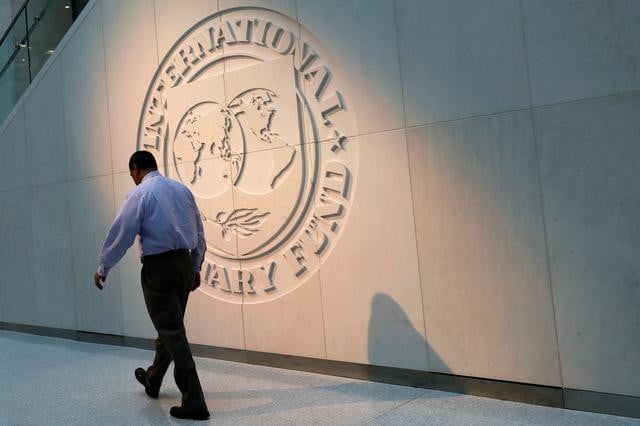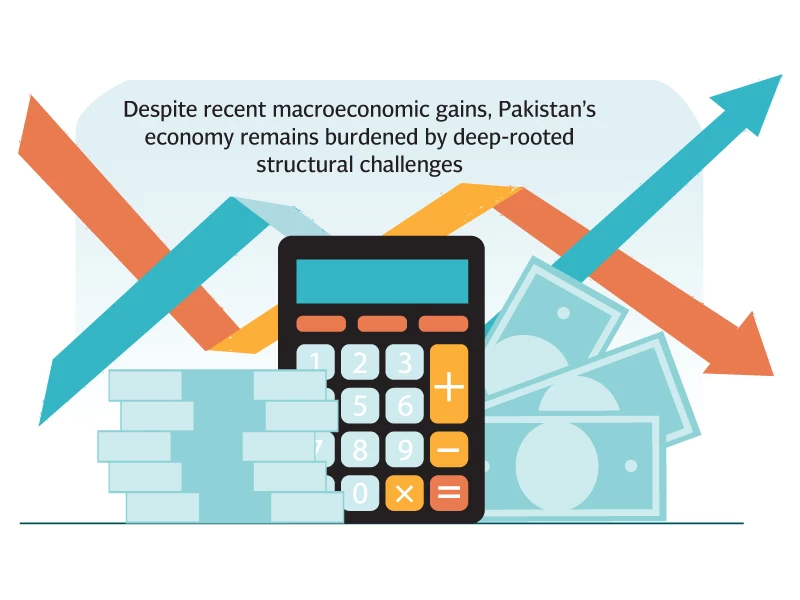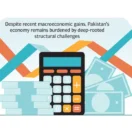By Shahbaz Rana
Published in The Express Tribune on March 09, 2023
ISLAMABAD: Central bank Governor Jameel Ahmad said on Wednesday that staff-level agreement (SLA) with the International Monetary Fund (IMF) was “close to finalisation” but shied away from giving a date amid his forecast of a reduction in non-debt creating inflows.
The head of the State Bank of Pakistan (SBP) made a policy statement about the external sector outlook, inflation and economic growth during a meeting of the Senate Standing Committee on Finance.
His assessment painted a bleak external sector picture, indicating that the combined inflows, on account of exports and foreign remittances, will be $14 billion to $15 billion less than the budgetary estimates made by the federal government.
“The SLA is close to finalisation and it is now a matter of time when it will be announced,” said the governor. The current account deficit (CAD) projection that he gave for this fiscal year, however, was still out of line with the IMF’s forecast.
“We will be closing this fiscal year at a CAD of around $7 billion,” said Ahmad – a figure that is $1.2 billion less than the IMF’s forecast but in line with Finance Minister Ishaq Dar’s assessment.
The CAD quantum has a direct bearing on the external financing gap, which Pakistan sees at $5 billion but the IMF has projected at $7 billion, according to the finance minister.
The reduction in the CAD is artificial and has been achieved by closing industries and inflicting damage on the people, said Senator Kamil Agha.
The CAD has remained $3.8 billion during the first seven months of the current fiscal year – down by 68%. According to the SBP, the economy continues to depict signs of a policy-induced slowdown, mainly in response to monetary policy tightening and administrative measures to counter inflationary pressures and address external challenges.
Taking a jibe at the governor, PTI Senator Mohsin Aziz said that the SBP governor should be given a certificate of honour for shattering the economy to reduce the CAD.
The governor maintained that imports will be opened but only after the completion of the IMF’s 9th review of the country. He insisted, however, that the banks were ensuring the provision of dollars for essential imports, including medicines, edible oil and fuel imports.
“The foreign debt-creating inflows will start picking up after the revival of the IMF programme,” said governor, highlighting that gross reserves have increased to $4.3 billion on the back of a Chinese loan injection – but is still below a one-month import cover.
Pakistan has attracted only $690 million in foreign direct investments (FDI) during the July-February FY23 period compared to $1.2 billion over the corresponding period last year.
The outflows on account of debt repayments were $2.4 billion higher than the inflows during the July-January period. Going forward, these flows are expected to improve owing to assurances from friendly nations, it added.
“A successful completion of the ongoing 9th EFF review of the IMF is critical,” according to the written statement submitted to the committee by the SBP.
Declining non-debt creating inflows
The governor explained that compared to $31 billion last year, foreign remittances will fall from $28 billion to $29 billion in this fiscal year – a reduction of about $3 billion. The senators, however, declared that the reduction will be far higher when compared with this year’s projected increase of $33 billion.
To a question, the governor agreed that the difference in the official exchange rate and that in the grey markets also caused a reduction in remittances. He said, however, “the central bank has suggested the federal government revise remittance related fiscal incentives, including for Saudi Arabia, to reverse the downward trend.”
To another question, he said that exports may also remain in the range of $28 billion to $29 billion – almost $9 billion to $10 billion less than the official target set by the Ministry of Commerce at the time of the budget.
Exports have fallen by 7.4% during the July-January period and the decline in exports was broad-based except for some high-value-added textile items, said the governor.
Inflation
“Inflation will remain elevated during the next three months,” said the SBP governor, but hoped that the average inflation rate during the current fiscal year would remain around 26%.
To a question about whether the SBP will reduce interest rates in the coming months, Ahmad said, “No comment can be made at this stage about the direction of the interest rate.”
A member of the committee said that another 2% increase in the interest rate was coming next month on the IMF’s demand.
Last week, the central bank increased the interest rate by 3% to 20% – in a move to “keep inflation expectations anchored amid rising inflationary pressures and increasing political and economic uncertainty.”
National CPI (CPI) inflation increased to 31.5% in February 2023, as inflationary pressures remained elevated across all sub-components – food, core and energy, according to the central bank.
“The recent pressure on the exchange rate, and increase in taxes and duties in the Supplementary Finance Bill, have added to inflationary pressures,” stated the central bank.




